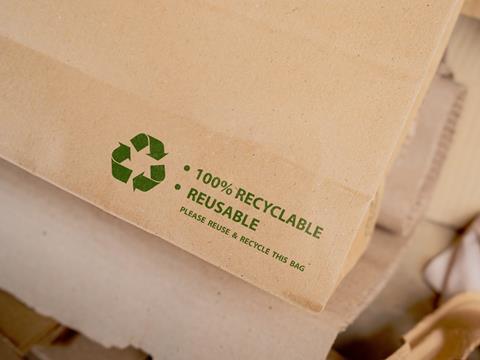
In a move set to provide up-to-date advice for improving the recyclability of plastic packaging, RecyClass has updated its Recyclability Evaluation Protocols and released a new set of Design for Recycling Guidelines for all plastic packaging streams.
Eighteen testing campaigns were commissioned by RecyClass in 2023. These involved the evaluation of various components in independent testing facilities to investigate the behaviour of common packaging technologies during the sorting and recycling processes.
Such tests were conducted in line with standardized testing methods, as laid out in the RecyClass Recyclability Evaluation Protocols.
In response to the results, and following the alignment with The Association of Plastic Recyclers (APR), RecyClass has updated its Recyclability Evaluation Protocols to enhance the processing conditions and characterizations of the materials – involving the development of new testing procedures for PET bottles and adhesives applied on PET bottles.
Its PET Thermoform Taskforce was recently launched and is expected to inform further guidelines and future testing protocols for PET trays.
RecyClass has also carried out trials on non-PE decorations for HDPE bottles. These also cover PP and HDPE rigid rolling packaging to improve its understanding of sorting performances between different plastics; a revised version of the RecyClass Sorting Protocol is expected to be released soon.
A more detailed classification of ink binders and AlOx coatings with PVOH primer in PO films, alongside similar clarity surrounding PU-based materials for laminating adhesives in flexible PP packaging, are among the new additions to the Guidelines.
The MFI of PE closures used on PE containers has been implemented for rigid packaging, while thermoplastic elastomers have been classified as fully compatible with HDPE and PP recycling streams, and emphasis has been placed on the need for label removability in rigid HDPE packaging. The results will be announced this year.
“Thanks to the continuous and dedicated collaboration with scientific laboratories, RecyClass continues providing science-based and standardized tools to guide the value chain in the transition towards plastics circularity,” said Paolo Glerean, chairman of RecyClass.
The RecyClass Online Tool and Recyclability Certification Scheme have been updated to reflect the new design recommendations. New testing is also taking place, which will add to the recommendations set out in the Design for Recycling Guidelines.
All the way back in December 2022, RecyClass revealed the beta version of its Fibre-Based Packaging Recyclability Evaluation protocol. The tool was expected to create an improved and standardized framework for evaluating the recyclability of packaging products in Europe.
Following this, the company updated its Design for Recycling Guidelines and Recyclability Evaluation Protocols in early 2023, intending to align with developments in packaging features and recycling technologies.
Its last round of updated Design for Recycling Guidelines was said to encompass all plastic packaging streams and sought to both improve recyclability and harmonize plastic packaging recycling globally.
If you liked this article, you might also enjoy:
The L’Oréal approach to packaging sustainability
The way we talk about plastic needs to change – here’s how to get it right
What steps is Apple taking to make its packaging more sustainable?














No comments yet